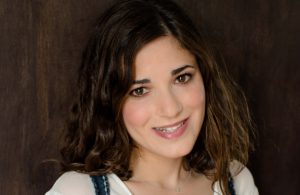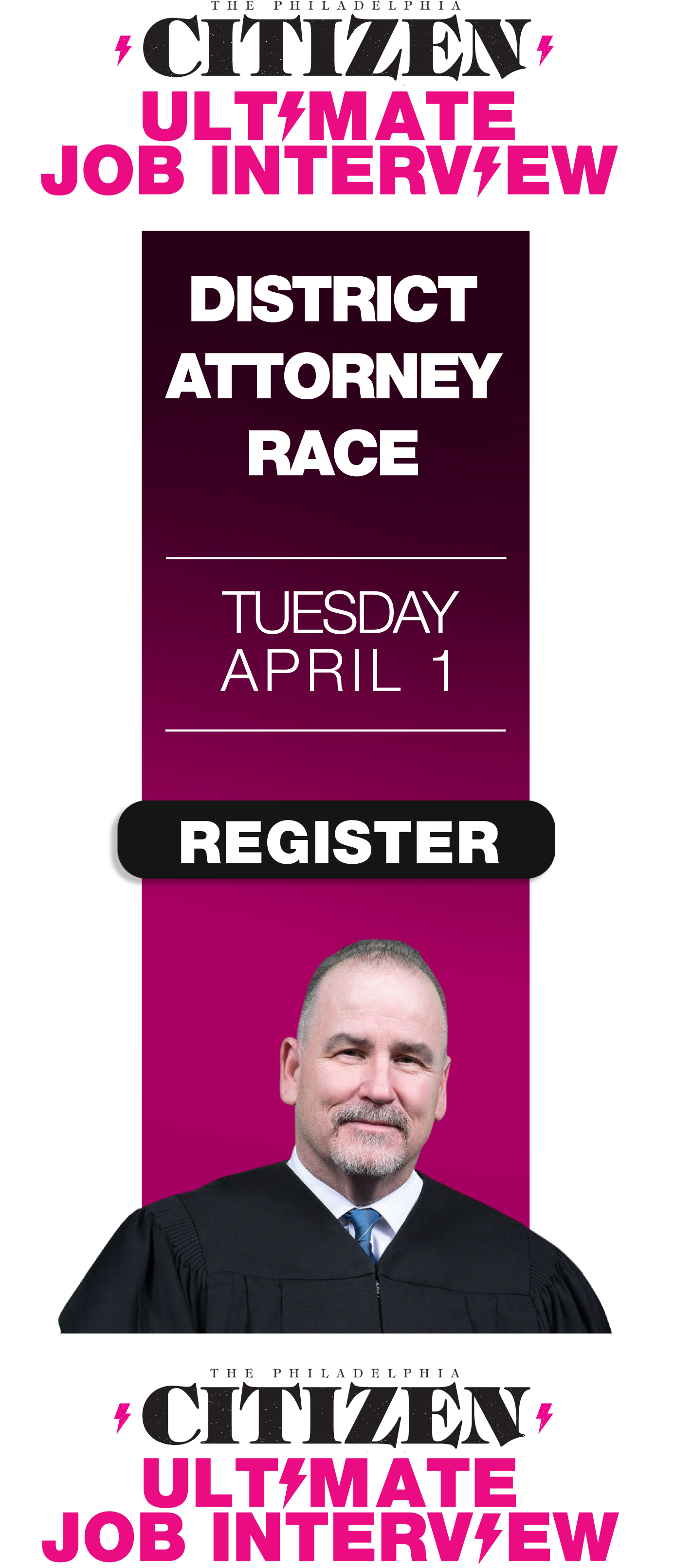January 31, 2012 could have been the greatest day of Emily Kramer-Golinkoff’s life. That was the day the FDA approved Kalydeco, the first ever drug to treat the root cause—not just the symptoms—of cystic fibrosis, a genetic lung disease that (until then) was always fatal. The drug was the result of 20 years of funding research from the Cystic Fibrosis Foundation, one of the country’s oldest and largest patient advocacy groups. It was like a hard-won miracle in the field of personalized medicine that changed thousands of lives instantly. But not Kramer-Golinkoff’s.

For all its promise, Kalydeco works for only 4 percent of the 30,000 CF patients in the United States. For the rest, like Kramer-Golinkoff, it was a milestone towards a goal they might never reach. Kramer-Golinkoff has a rare form of the already rare disease, with two instances of a “nonsense” genetic mutation that likely causes CF in maybe hundreds of people worldwide. (It’s so rare, she doesn’t even know how many people have it.) She has 35 percent lung capacity; spends three to four hours a day giving herself nebulizer and other treatments to clear her airway; has CF-related diabetes, a common CF side effect; suffers frequent “lung bleeds” that send her to the hospital; and is on constant vigilance against any infection that might prove fatal. She is 30 years old; median life expectancy for CF patients is 41.
On that day she learned of the CF “miracle,” Kramer-Golinkoff understood that not only was Kalydeco not going to help her, the next drug to come out—this summer’s Orkambi, which could help around 50 percent of CF patients—would also not treat her particular strain of the disease. In fact, very few seemed to be looking for a cure for her form of CF. “With this drug, I saw so many people’s lives transformed before my eyes,” she says. “And I’m really happy for them. But I also saw that it wasn’t going to make a real difference to my own life.”
Instead, Kramer-Golinkoff decided to make her own difference. Shortly before Kalyedeco hit the market, she started Emily’s Entourage with family and friends, raising $50,000 in one week to give towards CF research. An inspiring and heartrending video about Emily and her family—her parents, two sisters and a brother—spread through social media, and money kept pouring in. At first, Kramer-Golinkoff sent funds to the CF Foundation. Soon, though, she started her own scientific advisory board to vet and fund research that was more specifically-focused on her CF mutation. More than three years later, she has raised $1.5 million, and held two national symposiums, the most recent in early September, to connect researchers who together might be able to save her life and the lives of those like her—because no one else was.
“The normal drug pipeline had very little for me,” says Kramer-Golinkoff, who has a Masters degree in bioethics and works in Penn’s Social Media and Health Innovation Lab. “That was disheartening. I might have a rare mutation, but my life still matters. It shouldn’t be a barrier to research.”
Kramer-Golinkoff has raised $1.5 million and held two national symposiums, the most recent in early September, to connect researchers who together might be able to save her life—because no one else was. The White House named her one of nine “Champions For Change.”
Kramer-Golinkoff doesn’t seem sick when you talk to her, or look sick when you see her. She is beautiful and lively, with more energy than seems possible for someone with degenerating lungs. She travels the country visiting labs and universities, where she delivers TED-style lectures for work and her foundation. This summer, she went to Italy with her family, carrying all her medical supplies with her—then spent two weeks in a Colorado hospital treating a worrisome lung infection. Her health is never not on her mind. But with Emily’s Entourage, her anxiety has a focus and a purpose that has given her a renewed sense of control over her situation—and hope.
Thanks to Emily’s Entourage, several labs around the world have intensified their research into nonsense mutations, which cause several different rare diseases affecting thousands of people. That is the great hope of precision medicine, which focuses on individual patients at a genetic level. Kramer-Golinkoff’s CF is rare, but the mechanics of genetic mutations means that a breakthrough in her affliction could be transferrable to patients suffering from Duchenne muscular dystrophy, for example, or spinal muscular atrophy. The movement has taken off in the last few years thanks to rapid advances in our understanding of genetics, but also because of a new focus on rare diseases. Penn in 2011 opened its Orphan Disease Center, led by gene therapy pioneer Jim Wilson, and a few other institutions have also begun to specialize in rare diseases. And earlier this year, Pres. Obama announced the President’s Precision Medicine Initiative to push forward individualized healthcare on a national scale.
For Kramer-Golinkoff, the moment has been remarkable. In July, the White House named her one of nine “Champions of Change” for the work she has done with Emily’s Entourage. (“I got to hang out with [NIH Director] Francis Collins, who discovered the CF gene—he’s a hero of mine,” she says.) But the true test of Kramer-Golinkoff’s success is also the most elusive: A breakthrough that will save her life.
“It’s a tremendous responsibility to think that the biggest hope for your future is in your own two hands,” says Kramer-Golinkoff. “But no one else was ever going to care about this as much as my family and I do. We were very aware that we didn’t have time to wait. So we’re hacking the biomedical research system.”
If Emily’s Entourage is successful, it will not be because Kramer-Golinkoff has convinced Big Pharma that her narrow disease is suddenly worth the millions of dollars needed to bring a drug to market. It will be because researchers in a lab somewhere found a new way to think about CF or nonsense mutations, or because someone realized that an existing drug or biotechnology treatment could translate to CF patients like Kramer-Golinkoff. It’s these discoveries that Emily’s Entourage hopes to jumpstart. At their first research symposium in 2014, the foundation brought together CF and gene researchers from Israel, Canada and the United States, which then led to multinational collaborations. At the second symposium in September, they broadened their scope and invited scientists from different related fields whose research might spark some new ideas. Emily’s Entourage alone has distributed several hundred thousand dollars in direct grants to researchers. (Among other ways, they raise money through bike rides, races and an annual December gala.) But Kramer-Golinkoff says raising money, and giving it away, is relatively easy.
“Traditionally, researchers work in silos, and their end goal is publication,” says Kramer-Golinkoff. “That’s related to, but not the same as, our end goal of new drugs. We are trying to leverage academic research with a business approach, to find ways to promote collaboration within researchers, and with industry. It’s an interesting business case for pharmaceutical and biotech companies. We can use my specific mutation as the prototype, but learning can be used way beyond that.”
“No one else was ever going to care about this as much as me and my family,”Kramer-Golinkoff says. “We were very aware that we didn’t have time to wait. So we’re hacking the biomedical research system.”
Kramer-Golinkoff does not expect to change the culture of academic research, or the pharmaceutical industry, altogether. But she has inserted into the dry workings of a laboratory something unheard of before the era of precision medicine: A real person. About a year ago, Kramer-Golinkoff realized that one barrier to research was a lack of cells in the lab with her particular mutation. So she flew to San Francisco and Birmingham, and offered millions of her own: Scientists pushed a brush deep into her nose, and scraped out cells they then used to test different compounds. And Kramer-Golinkoff has become friendly with some of those doing the research. Now, instead of labelling test tubes with numbers and codes, they name them “Emily’s Entourage.”
“It’s motivating,” she says. “We’re putting a story and a face and a family behind the urgency of this work. It’s a person whose life they’re thinking about, not just a day job.”
Kramer-Golinkoff is undoubtedly sick. But she is also undoubtedly hopeful. She has seen the lives that have changed because of new Cystic Fibrosis treatments—friends who’ve had babies, who’ve lived beyond middle age. She has seen what she hopes is her future. “One of my friends who is on Kalydeco says her biggest fear has changed,” Kramer Golinkoff says. “Now she’s worried she’s going to outlive all her friends in the CF community.”
That’s a worry it would be a privilege to share.
Header image: Jeremie Wimbrow/Brownstein Group




